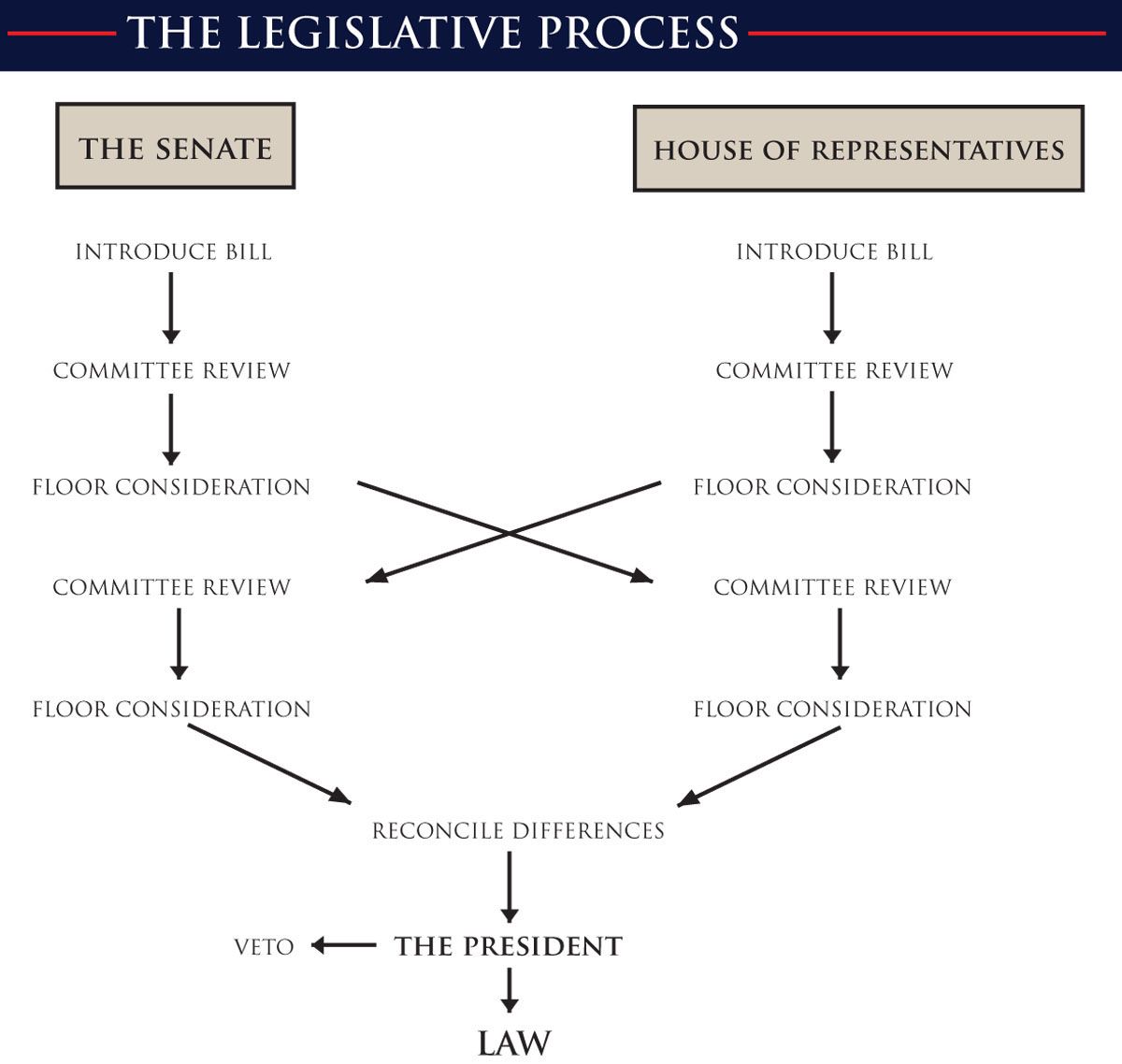|

Describe how the United States Congress makes laws.
The United States Congress is the chief legislative or law-making body in the land. Through the laws it passes, it defines crimes and punishments, establishes levels of taxation and spending, and creates the programs and policies that shape American government and politics. The Constitution also formally grants to the Congress the “Power of the Purse,” which means that only the Congress can raise and spend taxes. The Congress also reserves the right to declare war, even though the president is the commander in chief. Because it holds this power, the Congress is significantly involved in the establishment and regular review of Pentagon, State Department, and other foreign policy budgets and activities. As established by the Constitution, the Congress is composed of two separate legislative bodies — the House of Representatives and the Senate. There are 435 members of the House and 100 Senators. In the House, each state is allocated a proportion of the 435 seats equal to the state's proportion of the nation’s population. For example, a state with 10/435ths of the nation’s population has 10 seats in the House of Representatives. In the Senate, each state is represented equally — all fifty states send two senators to represent them in Washington. Because there are 535 members of Congress, representatives and senators are more directly and frequently influenced by the people than are presidents or Supreme Court justices. The voice of the people is most directly reflected in the decisions made by the Congress. The legislative process can be long, tedious, complex, and frustrating. Indeed, it is much more difficult to pass a bill than it is to kill one. There are numerous times and places during the legislative process at which a bill can die. Only a very few survive to become law. Before the Process BeginsWhile the formal legislative process begins when a bill is introduced in the House or the Senate, a bill is “born” long before that. By introducing a piece of legislation, a member of Congress proposes a solution to a public policy problem. Before a public policy problem can be addressed through the legislative process, however, it must first be recognized as a problem. Once a problem is identified, possible solutions for the problem must be identified and discussed. In the American political process, there are generally more than enough proposed solutions to the problems the nation faces. The difficulty lies in sorting through the proposed solutions to find the one that will work best. When a member of Congress proposes a bill, he or she is essentially claiming to have found the best (or at least most practical) solution to the public policy problem in question. 
This work is licensed under a Creative Commons Attribution-Noncommercial-Share Alike 3.0 Unported License |
About Us | Terms of Use | Contact Us | Partner with Us | Press Release | Sitemap | Disclaimer | Privacy Policy
©1999-2011 OpenLearningWorld . com - All Rights Reserved



